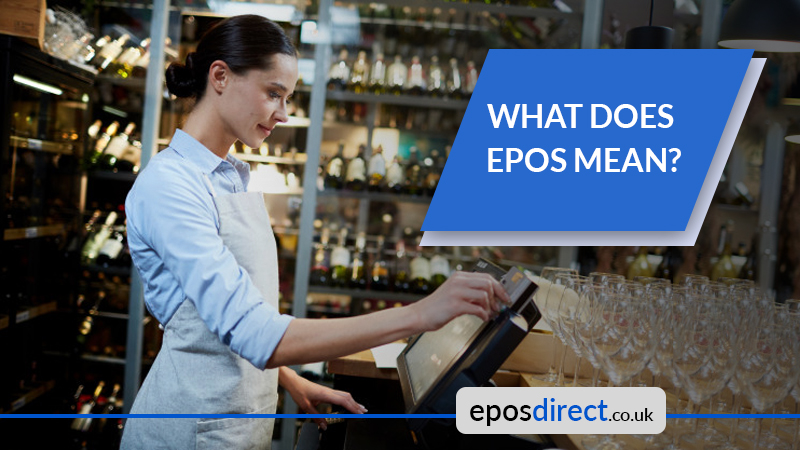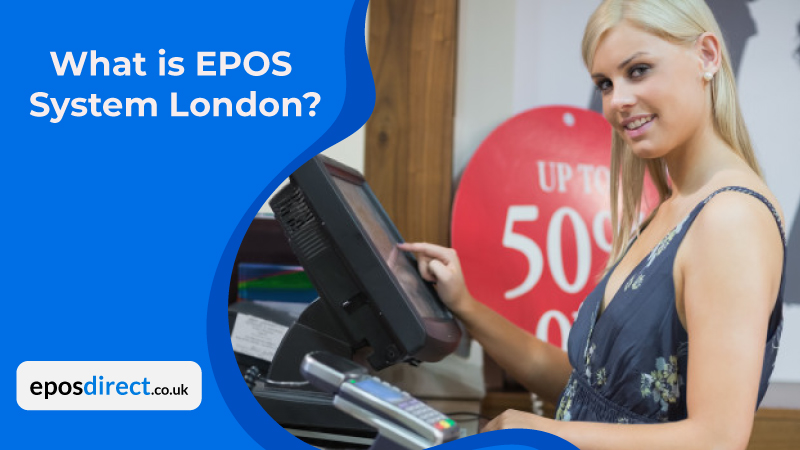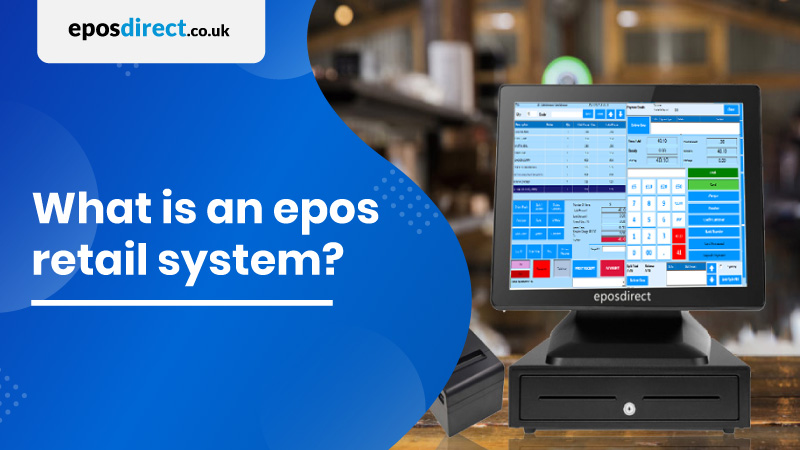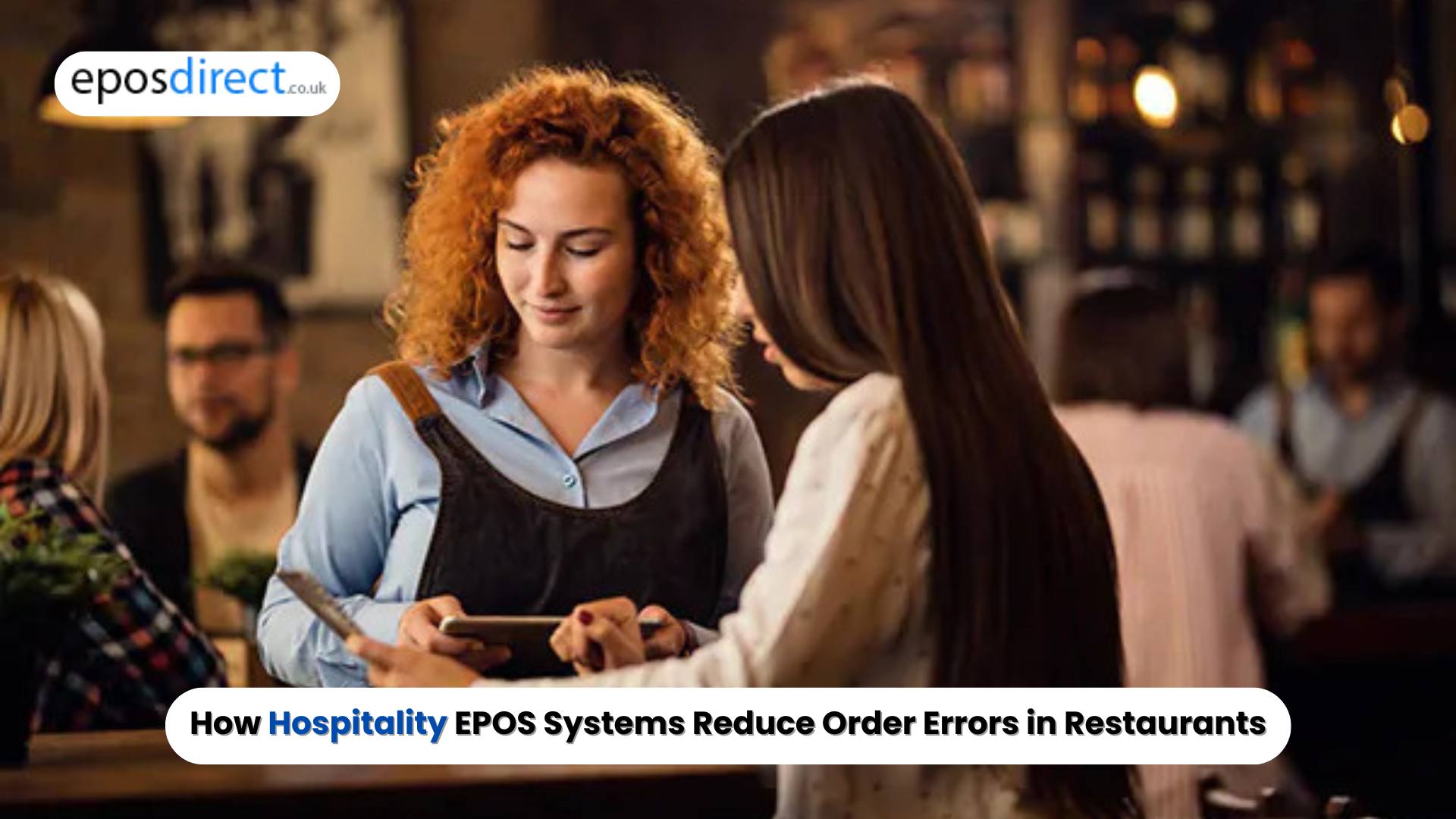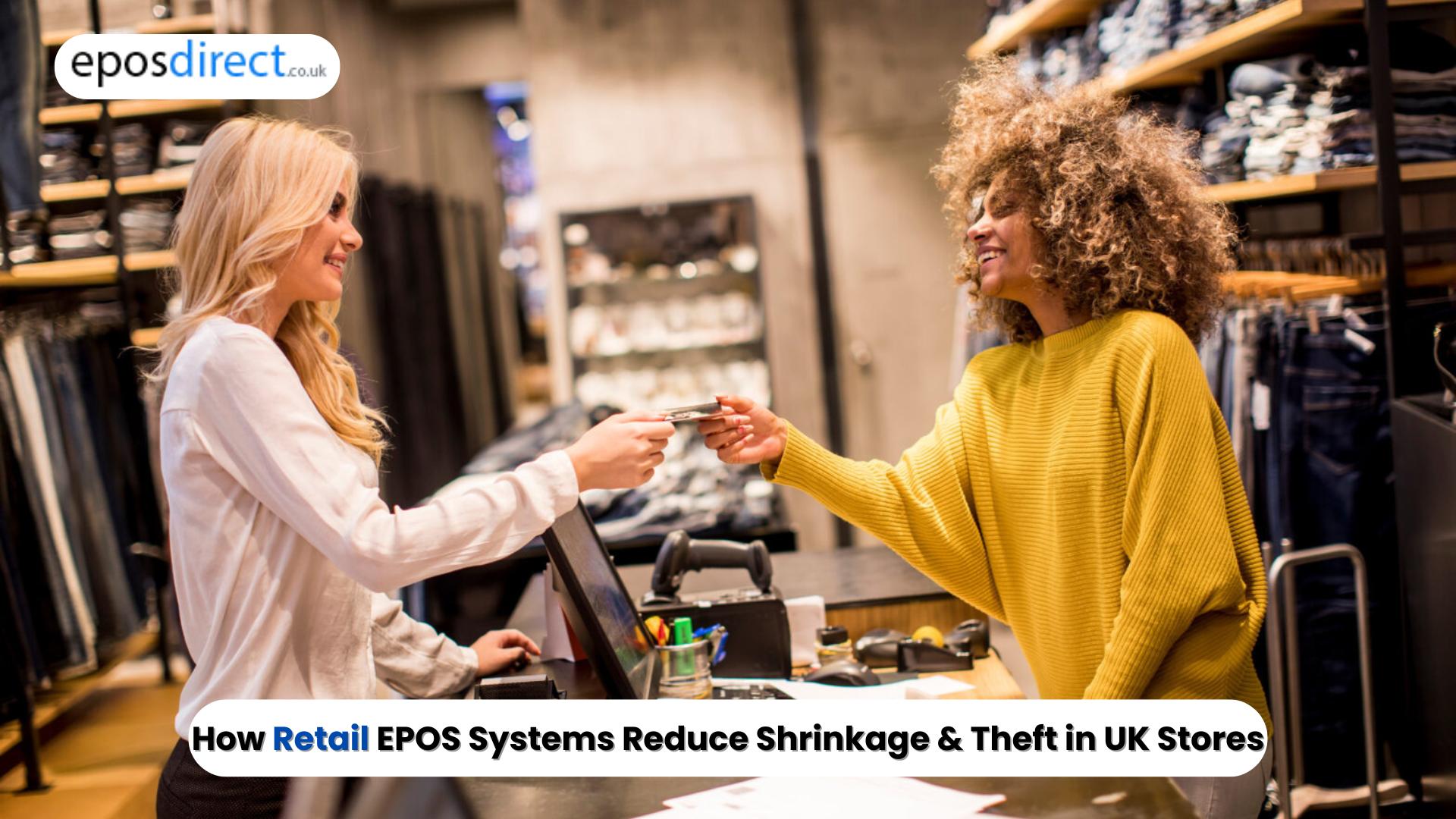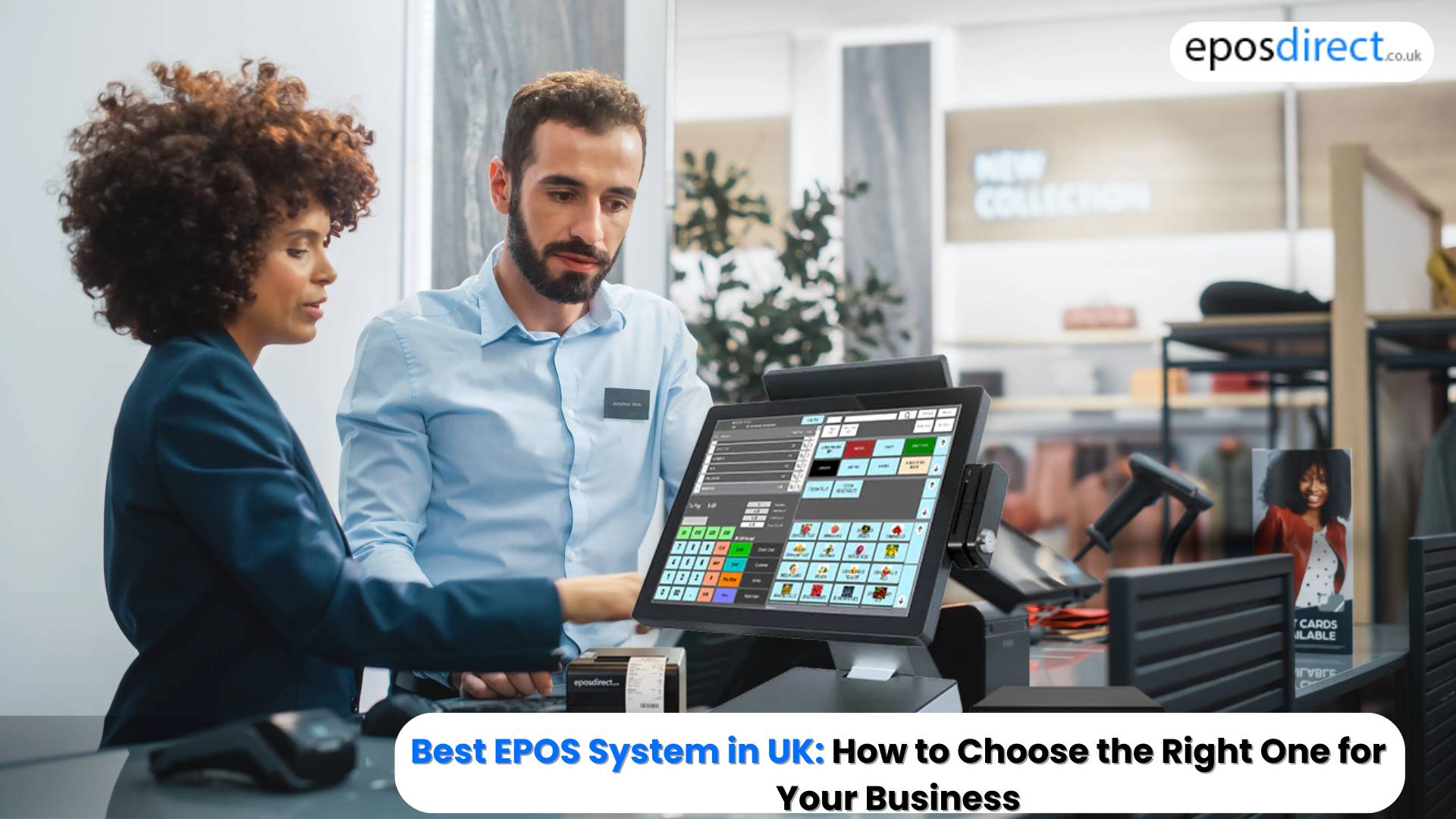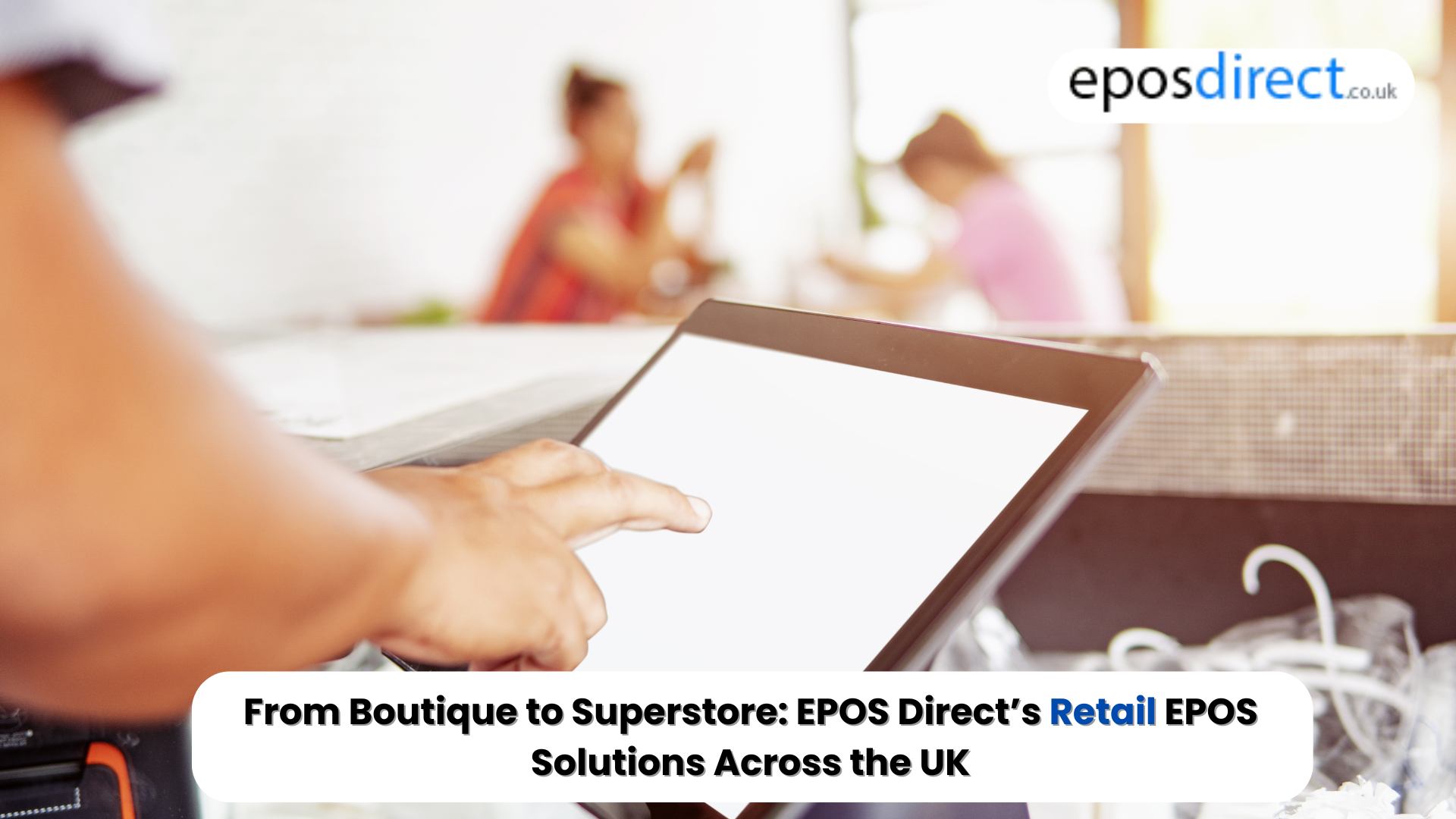We use cookies to make your experience better.
To comply with the new e-Privacy directive, you agree to the privacy policy and our use of cookies
What Does EPOS Mean?
Keeping your retail business up to date with the latest and embracing new technology and ways of working is crucial to success. In this competitive market place, those not always looking for methods to improve their working practices are left behind by competitors who are doing as such. An Electronic Point of Sale (EPOS) system is something that many are looking towards as one such approach for becoming efficient and cost effective.
What Is An Epos System?
An EPOS system is the latest version of the `checkout till`, bringing in advanced and latest features suitable for a modern retail environment and recording sales that have been made, EPOS systems can take data and use it to make reports that can help retailers with refining and adopt their business methods. Different features can also be integrated, with the ability to incorporate stock management, staff management and loyalty schemes.
What Does An Epos System Do?
As already mentioned, an EPOS system is capable for performing a wide range of tasks. It has the ability to store and process data which is plays an important role, as said data can be used to benefit a business in the way they see fit. It performs the abilities one might associate with a checkout, for example, the ability to print out receipts, and also print any vouchers or promotional offers that may be offered to pull in repeat customer. An EPOS system also profits by network that can see it linked up to existing infrastructure inside the retail environment. A retailer`s site can be connected, and data transferred between the two, as can various terminals, giving the opportunity door for real time stock availability to be obtained.
How Does An Epos System Work?
An EPOS system looks like a checkout till each one of the components you would expect to find there are contained. A cash drawer, keypad, chip and pin and customer display can be available, and also barcode scanners. A screen will be visible that takes after that found on a touch screen monitor and is used for the manual inputting of payments and data. There are additional hardware items that can push an EPOS system further, and add value. Printers can be integrated either by cables or using wireless network, as can any card payment technology that a retailer may like. Data can be put away either locally inside the retail environment, using servers, or by means of cloud-based systems. Cloud based includes a monthly charge, which covers system updates.
Benefits Of Using An Epos System?
Retailers have the biggest advantage an EPOS system brings to their business is flexibility. As opposed to a `one size fits all` way, EPOS is fantastic for customization and flexibility. What one retailer wishes to concentrate consideration on may not be equivalent to the need of another, which is the point at which this system turns out to be particularly important. Sales of various products can be tracked, stock availability monitored and trends noticed which are all important to many retailers. Special offers and pricing changes, for example, in `sale` periods, can be effectively inputted and action can be taken promptly, offering further time savings and customer confidence and satisfaction.
Along with the benefits the system brings to frontline staff, those working the backline can also reap the benefits. Marketing numbers and figures are not only accurate but can be consolidating into data drifts effectively, making analysis of the success of specific campaigns and promotions simple, just as predictions of emerging trends. Records become easier with the production of accurate reports, and marketing efforts can be checked for their effectiveness and developed based on figures and statistics as opposed to theory. Stock control can also be made easier, through similar ways, with storerooms ready to respond to or predict spikes and falls demand after at specific times and because of specific circumstances.
EPOS systems can also help the management at retail stores work all the more effectively and monitor how their staffing levels run. It permits full records of the activities performed on it by staff that used it, for what, and at what time. An obvious advantage of this is to lessen the probability of any problems, and to be quickly and precisely ready to discover the root of any problem should it happen. Alongside this however lies a way to see exactly how busy staff are, and whether position and placement of them is at its best. This can lead to redeployment of staff in an efficient way that may spare the retailer time and money.
Customers also observe from retailers that are using an EPOS system. Advantages will also be felt by a faster transaction time, and the decreased likelihood of any issues being encountered. General issues, for example, in appropriate pricing are less inclined to be met, as a reliable way is generated over all systems inside the retailer`s environment. Customers are ready to get speedy responses to any inquiries they have with respect to whether certain things are available, as a single staff part can get to all the important details at the same location as transactions happen.
Comment(s)

